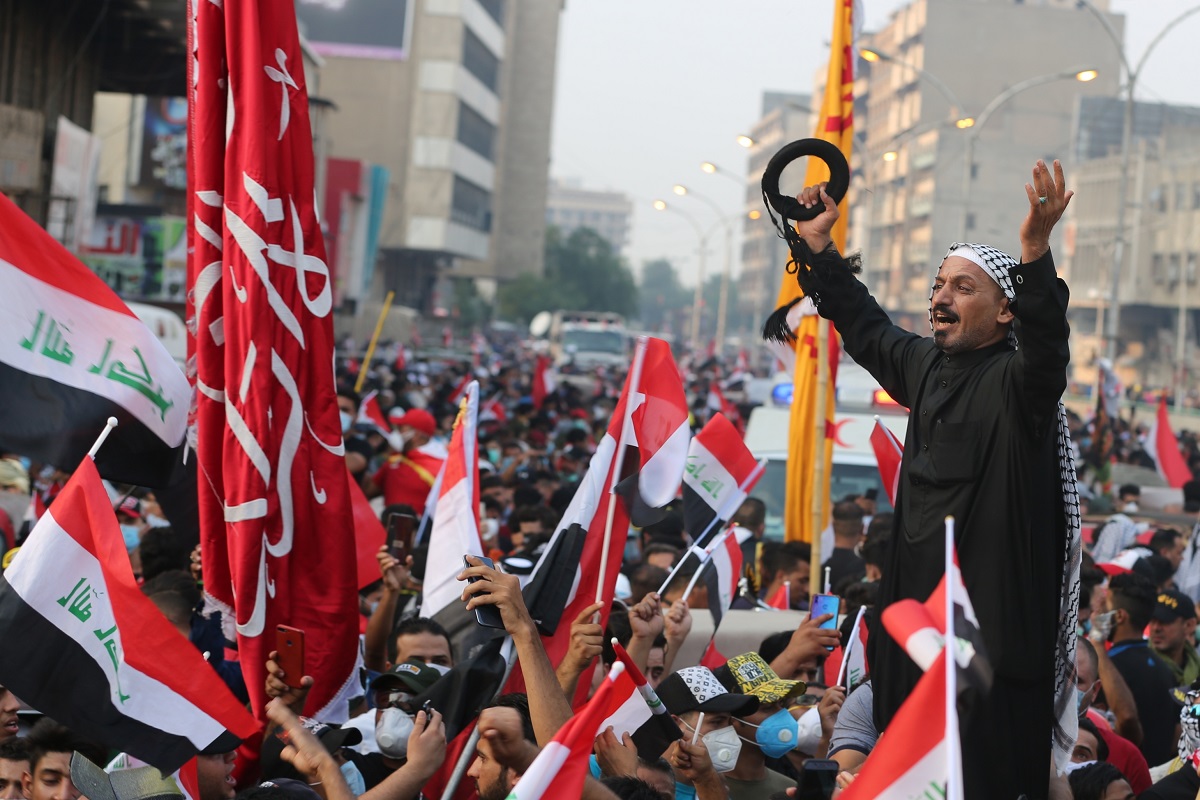Tens of thousands of people gathered onto the streets of Baghdad to protest against the presence of US troops in Iraq.
Protesters took to the streets in the Al Jadriyah neighbourhood of the capital after Shiite cleric Muqtada al Sadr called on Iraqis to demonstrate.
Advertisement
Participants carried Iraqi flags and banners written in both Arabic and English with slogans such as: “No, no, to the US”, “Yes, yes to the Iraqi sovereignty”, or “Global terrorism is carried out in the United States of America”.
Supporters of the cleric sported t-shirts and placards with his picture.
As in many other protests, demonstrators burned pictures of US President Donald Trump.
Friday’s demonstration comes three weeks after a US attack near Baghdad airport killed Iranian general Qasem Soleimani and several Iraqi Shiite militia leaders on January 3.
Days after the strike, Iraq’s Parliament approved a process for the departure of US troops from the country.
Earlier in the month, thousands of Iraqis marched and chanted “Death to America” mourning a top Iranian commander Qasem Soleimani and others killed in a US drone attack that sparked fears of a regional proxy war between Washington and Tehran.
Earlier, US President Donald Trump said he had decided to “terminate” Iran’s military mastermind to prevent an “imminent” attack on US diplomats and troops.
Al Sadr said they will resort to all peaceful means until their demands are met and all the soldiers leave Iraq.
After the death of General Soleimani, Al Sadr, who supports the largest alliance of political parties in Iraq’s Parliament, called on combatants to “be prepared” to face the Americans again.
Al Sadr led the 2003 insurgency after the US invasion of Iraq, despite not being aligned with Iran and has even supported popular protests against the government and foreign presence in the country, including the Iranian.
Pro-democracy activists have sporadically taken over party of central Baghdad calling for an end to corruption and Iranian and US influence in Iraqi politics. Human rights groups have denounced alleged police violence against those protesters.
On January 3, Trump had ordered the death of Soleimani, commander of the Quds Force of the Islamic Revolutionary Guard Corps considered a hero in the country, in order to “stop a war,” not start one.
Maj Gen Soleimani led Iran’s Quds Force – the IRGC’s elite unit which handles clandestine operations abroad, since 1998.
In that position, Gen Soleimani played a key role bolstering Bashar al-Assad’s Iranian-supported government in the Syrian Civil War, and in the fight against the Islamic State (IS) group in Iraq.
He was a hugely significant figure in the Iranian regime. His Quds Force reported directly to Supreme Leader Ayatollah Ali Khamenei.
(With inputs from agency)











